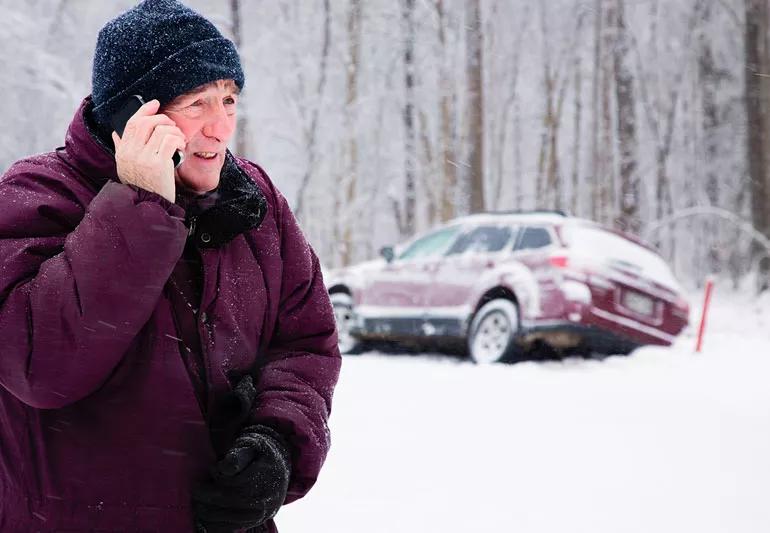Here's what you need to round up for your trunk

Image content: This image is available to view online.
View image online (https://assets.clevelandclinic.org/transform/560a2c7e-bc93-4342-872f-d173eae6b5ee/winterDriving-462864135-770x553_jpg)
Man calling for help after his car goes off the road during winter driving
Life doesn’t always stop for winter weather. You still have to drive across town, despite the snow flurries quickly turning to near-blizzard — or the subzero temperatures. So how can you stay safe?
Advertisement
Cleveland Clinic is a non-profit academic medical center. Advertising on our site helps support our mission. We do not endorse non-Cleveland Clinic products or services. Policy
In this video, emergency medicine specialist Thomas Waters, MD, offers his recommendations on what to grab for your car’s winter emergency kit.
Video content: This video is available to watch online.
View video online (https://www.youtube.com/embed/6YFHl9yFY7A?feature=oembed)
And it’s also important to know the warning signs of frostbite, which include pins and needles pain in your extremities. Plus a change in your skin’s color. If you feel like you’re getting frostbite, you want to warm up and keep the areas warm. (Don’t warm it up and then re-expose it because the tissue damage can be much worse.)
If you know the weather’s going to be especially cold or brutal, it’s best to avoid traveling ― if at all possible. But if you must be out and about, being prepared is key to staying safe. Weather can change in an instant and you don’t want to be caught without winter emergency gear.
Advertisement

Delivered every Tuesday!
Sign up for our Health Essentials emails for expert guidance on nutrition, fitness, sleep, skin care and more
It's a letter about the news!

Every two weeks once
Sign up for our Health Essentials emails for expert guidance on nutrition, fitness, sleep, skin care and more.
Learn more about our editorial process.
Advertisement
If the flakes are undisturbed, pristine white and come from the top layer, it’s typically safe to indulge in a scoop
Bottom line? Dress warm, be careful and plan ahead to get the most out of the season
Sneak in exercise when you can, pack your own lunch and make time for mental health
Taking slow, short steps and wearing proper footwear can go a long way in preventing falls
With planning and precautions, you may be able to keep winter health issues at bay
Some heat escapes if you don’t wear a hat, but it’s not as much as you might think
How to keep kids warm, healthy and safe
The short answer from an emergency medicine physician
Type 2 diabetes isn’t inevitable with these dietary changes
Applying a hot or cold compress can help with pain
Pump up your iron intake with foods like tuna, tofu and turkey